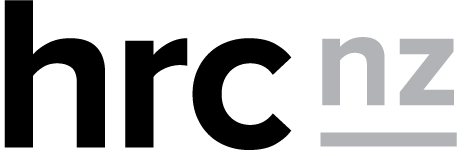Māori health research
Māori health research values Māori worldviews and builds Māori research capacity and leadership. It should build an evidence base that contributes to Māori health gains, derived from high-quality Māori health research that upholds rangatiratanga and uses and advances Māori knowledge, resources, and people. All of our HRC research investment streams, in particular the Rangahau Hauora Māori stream, are open to Māori health research and researchers. We also have a number of career development awards available to specifically support the development and dissemination of Māori health research.
Current & recent ideas funding opportunities
2025 Explorer Grants
Our Explorer Grants provide seed support for researchers with transformative, innovative, exploratory or unconventional research ideas that have a good chance of making a revolutionary change to how we manage health in New Zealand. These grants are available in any health-related field (e.g. basic, clinical, behavioural, social, public health, kaupapa Māori, Māori health, Pacific health, and translational sciences) and are worth $150,000 for a term of up to 24 months.
2025 Projects
We offer funding of up to $1,200,000 for research projects that have the potential to vastly improve the health of New Zealanders. Projects can cover a diverse range of areas, from biomedical and public health to clinical studies, Māori-focused research, and Pacific health research. Most projects have a term of three years, but we can negotiate terms of up to five years.
2025 Emerging Researcher First Grants
These grants provide research funds to develop the research skills and capability needed in areas of importance and priority for New Zealand – both now and for the future. They support emerging researchers who are seeking to establish independent careers in health research. Up to a maximum of $400,000 for three years is available.
Current & recent priorities funding opportunities
2024 Ngā Kanohi Kitea Community Advancement Grants
Developing Māori capability and knowledge is the prime focus of Ngā Kanohi Kitea community research grants. The grants provide opportunities for iwi, hapū and other community groups to address community-identified health needs. Full project grants are available and range from $50,000 to $200,000.
Current & recent people-focused funding opportunities
2025 Māori Health Clinical Research Training Fellowships
Our Māori Health Clinical Research Training Fellowships provide an opportunity for Māori medical, dental and allied health professionals, who have a current clinical role, to undertake a PhD or equivalent qualification. A maximum of $260,000 is available.
2025 Māori Health Research Development Grants
These development grants support Māori health researchers in developing a project proposal that will be submitted in our annual contestable funding round. Up to $10,000 is available.
2025 Māori Health Research Knowledge Translation Grants
Our knowledge translation grants are available for dissemination of research that key stakeholders (for example, iwi, community, health providers, Ministry of Health, Te Puni Kōkiri) have identified as important for future use, including policy and health service development. Up to $5,000 is available.
2025 Māori Health Research Summer Studentships
Our summer studentships are designed to introduce research to students studying health-related courses, and for those who would like to be involved in a Māori health research project over the summer vacation. Summer studentships are worth $7,500.
2025 Māori Rangahau Hauora Training Grant
This award is intended for Māori active in their community, and with no prior research training, to undertake practical research training on a large research project. The award is worth $12,000 for up to six months research training.
2025 Māori Health Research Masters Scholarships
These scholarships are available for Māori students undertaking the research component of their master's degrees. The total value of the scholarships is $20,000 stipend + tuition fees + $1,600 tikanga allowance for a term of one year full-time or a maximum of two years part-time.
2025 Māori Health Research PhD Scholarships
The Scholarship provides three years of personal support of up to $30,000 per annum, plus course fees, up to $10,000 in total research working expenses and a $5,000 tikanga allowance for outstanding graduate students in any discipline whose proposed research programme is relevant to health.
2025 Māori Health Research Postdoctoral Fellowships
Our Māori postdoctoral fellowships provide a salary, up to $100,000 research working expenses, a tikanga allowance and an annual conference allowance for outstanding graduates who have recently completed a doctoral degree and propose to conduct health research in New Zealand (with an option to also study for part of the fellowship overseas). The term of the fellowships is up to four years full-time.
2024 Māori Health Research Emerging Leader Fellowship
This fellowship focuses on the development of Māori health research knowledge, with a specific emphasis on equity and social investment that supports improving Māori health. The total value of this fellowship is up to $650,000 over four years.
